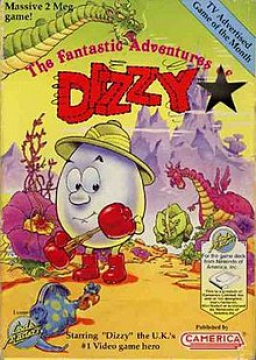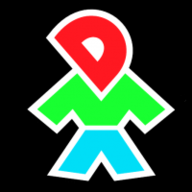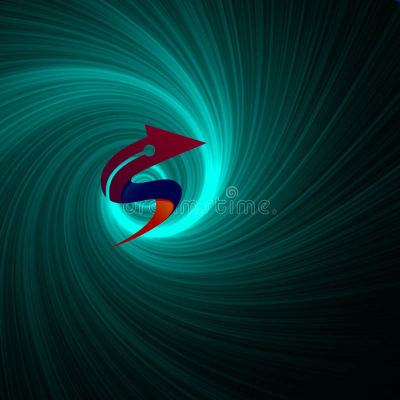I'm happy to see this game with official speedrun categories now, but I'm a little curious about some of the rules! For one thing, the NES rules mention there being two NES versions, but there were actually three. The third version only came out on NES in Europe, but it's become more relevant globally as that's the version that was chosen for release as official emulation on the Oliver Twins Collection cartridge for the Evercade handheld. I was thinking of recording a speedrun of it on Mesen last year in order to request the game here, but it may take me a while to put together a good route while I'm working on other things!
So what were the differences between the second and third NES versions? The first thing you notice is the language menu, which does hold up the title screen a little, but that should be before the "Press Start to play" moment that would start your timer. There's now a map of Keldor Town in its tunnels, but speedrunners shouldn't really need that if they've already practiced their routes. Keldor Castle lets you reenter without replaying the archery game now, but you really shouldn't need to if you know at all what you're doing...
Now, the third version also starts you with one more extra life than all the other versions, which I wasn't sure would be a big deal, but I just saw the first speedrun hosted here really depended on saving up enough extra lives from the picture puzzles to survive to the end, so that could be a helpful advantage. Furthermore, I've seen button-input cheat codes that give the player another extra life to start with in all versions of Fantastic Dizzy except the first NES version and the PC version. Should those be allowed? Other Dizzy games have rules or separate categories for such codes!
Most of the terrain and item changes were between the first and second versions--which I mean to document on TCRF eventually, but that's probably going to need its own subpage with a lot of screenshots to harvest first. The second and third NES versions have mostly identical worlds, but I did find one important change: In the second version, Dizzy's enhanced speed makes it possible to jump to the island where the Aqua-Lung is found if you start his run from the right spot on the beach, allowing you to explore underwater before playing the bubble-riding game from the ship. The third version appears to have added a little extra distance between that island and the shore, placing it just out of reach again no matter what kind of jump timing I tried. So that could definitely affect what routes are possible where it might have been beneficial to collect the Aqua-Lung early, and that might be reason enough to split out a third setting for the NES category.
Now I see you've got Amiga and CD32 as separate categories, but does either of them allow the rare AGA version on floppy disk? From the developer's comments and what I've seen of them for myself, the version on the CD32 collection is simply that AGA version with the audio muted to play its own CD tracks instead. The most important difference that version has on both floppy and CD is that it includes a menu accessible during gameplay with an option to make a saved game position anywhere to reload at any time--yes, a single in-game save-state. It doesn't persist when the game is closed, but that's still a big help to be able to save just before a risky maneuver to undo a disastrous outcome, so that really should be addressed by the rules. Personally I think allowing its use makes a stronger justification for that version to be its own category separate from the original ECS version, whether you play it on floppy or CD32.
Other thoughts I had concerned the clock speeds allowed for the various versions, since running them on 50 FPS (PAL TV) systems tended to just make them slower except for the music, but I'm not seeing those differences being separated out on other games besides sorting by Platform, so maybe it's not considered a big deal here. The MS-DOS version seems to limit the speed okay too, so you might not need to worry about a maximum number of cycles, but it also lets you turn off backgrounds and star count animations if those things would really chug on your system! I'm less sure about the various Amiga models' loading times... Apparently some let you preload both disks at once to save time later.
I also once expected this game would show up here under the name "Fantastic Dizzy" common to all the ports with the new box art that wasn't recycled from Fantasy World Dizzy for less confusion, but I guess First Installment Wins!
Thank you for your post! There's certainly a lot to unpack here, but I'll start by saying this: I am by no means an expert on the Dizzy games, nor an enthusiast; my project simply asked me to run this game, and so I did. That being said, as a mod for the game I do wish and intend to represent the game faithfully, and in the best interests of anyone that might want to run it.
There are a LOT of versions of this game; so many, in fact, that I considered perhaps leaving the other versions off this leaderboard entirely. Since I didn't see any for those versions (admittedly I didn't search very hard) I just went ahead and added them here, but if those games' communities wished to branch off to their own board I wouldn't have any issues with it at all.
That brings me to your points about other, different versions of games. As far as regional differences, if the 3rd NES version you speak of is not a US release, there would be other factors to consider for its' place on the board: assuming it's a PAL release, would it run at the same speed as the US versions? Are the amounts of stars/placement of stars identical? Are there any advantages to either version (as you so pointed out, there's at least a few). If there were interest in that version of the game being ran, and indeed it was different enough to warrant its' own board, I'd have no issues creating another one!
By AGA, I assume you mean Amiga? I can't find enough info about it to know for sure (again, these boards were created hastily, and I did more research to reply here than I ever did before it lol). In the sample videos I saw, I thought Amiga and CD32 should be separate simply due to load times. If this AGA version is similar to either version, from a speedrunning perspective, and including it in another board would be competitively viable (I.E. Master System and Game Gear, which are practically the exact same ROM), I'd be happy to oblige! This goes, in fact, for any possibilities I might've overlooked; if there's anything I missed, and someone has the wherewithal to run a more obscure category of a game, I'd be happy to accommodate them, in a separate category or leaderboard.
As far as clock speeds go, it's my own personal belief that running games on hardware they weren't designed to (I.E. 50 hz games on 60 hz consoles, PAL on NTSC, etc) would go against the spirit of the speedrun; PAL games should have their own leaderboard if there's enough of a reason/interest in doing so. IMO, playing PAL on NTSC shouldn't be allowed for any game or any platform. This is, of course, only my opinion, and I'd be willing to listen to anyone's argument on the contrary. You mentioned other things like versions with save states or turning off graphical assets; IMO if these features are available in the game to anyone that installs or plays it, then those options should be allowed! However, I also tend to think that level select codes, cheat codes, or "unfair advantages" (turbo, lag reduction/sprite limit increases, overclocking, etc) that were not intended as part of the vanilla experience should NOT be allowed, so if the runners of those versions wish to implement new rules in those regards, or separate categories, I'm all ears!
In conclusion, if you (or anyone else) feels that an improvement to the board is necessary or desired, please let me know! And if this game begins to draw interest from other runners, I'd be happy to expand the mod team or split boards off. This was designed to draw folks in and hopefully bring more interest to this game. Thanks for checking the board out! :) I hope to see runs soon!
I just remembered that the third NES version was also noted to have longer screen loading times! It does let you clear the opening story scroll a little sooner though, due to the lack of the unrolling animation, so I once pondered whether it would be simpler to start timing from clearing that screen. As for PAL vs. NTSC, I would have agreed that that particular NES version was only available in PAL territories, but the new Evercade release makes me wonder. It seems that most of Codemasters' NES games were coded to function on both NTSC and PAL consoles, even if released in only one region with no speed compensation to the actual gameplay, and indeed I have seen that third version of The Fantastic Adventures of Dizzy run at NTSC speed on many people's Evercades... but not all of them. Some videos of that Evercade collection clearly have them playing at PAL speed, made more obvious by the soundtrack not having a pitch correction, and I don't know if it depends on what region the Evercade was purchased in or on whether it's hooked up to a certain monitor via HDMI or if there's a secret setting on the thing I can't find any information on!
But the second NES version should definitely be acceptable on both PAL and NTSC now that I've read about how the Aladdin version's ROM was also sold in Europe in two other cartridge styles. The first NES version could probably be considered NTSC only, although it did appear on a Famiclone multicart in Poland that doesn't seem to have been licensed by Codemasters. I tried that multicart ROM on an emulator once, and it didn't even have the opening story scroll, though it's hard to say whether that's just an emulation issue or something altered for compatibility with that Famiclone.
And, yeah, the Game Gear version is basically the Master System version without the (totally cosmetic) day/night cycle and should always be running at 60 FPS. Apparently the Game Gear Dizzy games don't use a cropped viewing area but actually scale the entire Master System display down to fit the smaller resolution, letting you see just as much as on console but all very blurry, though some emulators don't bother with the scaling. The Master System version's music does seem to be optimized for 50 FPS, though without owning it myself, it's hard to say if emulators aren't just doing their own thing in regard to region detection.
I'm okay with Genesis, MS-DOS, and Amiga staying separate categories for now even if their world maps are virtually the same. It seems like one of those DOS ports that has tiny differences in the physics and timing because they couldn't port the code as exactly as they could between the Amiga, ST, and Genesis and get the same performance. There can be some tiny layout differences between the versions too: One I recall from planning a CD32 recording is that the Amiga versions placed a star to the left of the first mine exit where Genesis had the star on the right, which is a second or two of difference in going out of your way for that star. But as for the AGA version, I think you'd be fine just relabeling the existing categories "Amiga (OCS/ECS)" and "AGA/CD32" for clarity.
I know I saw people speedrunning the Genesis version just last year, so I expect to see some runs of it here before long!
Well, I haven't been able to do much more speed routing yet, because I'm still in the middle of comparing Nintendo version differences, but that has yielded a few new bugs that could lead to sequence breaks! For example, has anyone ever observed that the second and third NES versions allow Dizzy to climb over the top of the screen in the little area of Zaks' castle that opens into the sky and doesn't let you jump into the screen above? The level revision split the one little battlement platform into two, placing one closer to the wall than the original. If you jump from in between them, you'll overshoot and fall to one side of them, but if you're careful to do short jumps from the left, the wall can't stop you from jumping over into the area you normally need the rug and rope to get to. At that point you could swing back with the rope to get the star that was added near the bed of nails and finish without ever using the rug! Well, the stars prevent serious sequence breaking because you still need to visit every area, but this still means you could visit Dozy's house and be done with it before you break into Silver Stream.
One kind of bug that can vary by version is what happens when you walk into guards while under the butterfly's backward-walking spell, so I tried all of them. It turns out the town tunnel guard can cause a soft-lock of juggling Dizzy forever if you do that in the first NES version, but the second NES version often lets you jump all the way over the guard, while the third NES version kills Dizzy before he can get all the way over, so I guess that and the island jump are two sequence breaks exclusive to the second version, although it's kind of pointless with how much closer they moved the bag of gold coins. The leprechaun can also launch a moonwalking Dizzy to the other side of him in the second and third NES versions but will just keep killing Dizzy in the first version, though this doesn't let you plant the bean early anyway. But one sequence break that works in all NES versions is walking backwards into the dragon's fireballs, which will pull Dizzy into the area with the shamrock! That's much easier than the method of faking out the dragon into spitting a forward fireball just before walking in, which only works in the first version and might require too precise timing to pull off in real time anyway, but keeping the backwards state that far in may also be too big a gamble, comparable to just hoping the mine's elevator lights are already in the state you want them in the first version.
One more oddity that happens in all NES versions is that if you hit the last deadly obstacle in the minecart ride--the one just before the barrier that sends you into the final exit--while you have the minecart pulled back to the very bottom of the screen, then instead of killing Dizzy, it will drop him through the floor and onto the skull key/shovel on Bridge Street as though you'd successfully hit the exit, shaving a bit of time off the ride!
By the way, if you're interested in trying the second version of The Fantastic Adventures of Dizzy on original hardware, you could see if you can import the 1992 gray "Plug-thru" cartridge from Europe at a decent price. From all that I've read, the Plug-thru cartridges of The Fantastic Adventures of Dizzy all contain the exact same ROM as the Aladdin compact cartridges, but they attach to a licensed game in the same manner as the Game Genie just to make use of its lockout key, so that should be safely accepted by any official Nintendo Entertainment System so long as the whole lock-on rig seems safe to you. (Codemasters' later black cartridges sold in Europe mostly in 1993 sound as if they work more like the Aladdin Deck Enhancer and try to zap the lockout circuit with a heavy voltage draw no matter what, so don't mess with those if you don't think your NES can handle it.)
Finally, since I'm still a little new to all this, where do I go to request that this game be added to the Dizzy series page? https://www.speedrun.com/dizzy The rules for the Request Game button say that it's for requesting a game or series that's not already on the site, but it also mentions consulting the series moderator to request a game for an existing series, so should I send a message to 607?
I reached out to 607 about adding this title to the series and he said that he could not do so. I suppose we could try again, or we could contact an SRC mod and see if they can do the deed.
Interesting stuff you've discovered! I'd love to see this implemented into an RTA! This game needs more love and I can't wait to see someone really put some time and effort into it!
Ah, well, I can understand if the mods want to wait for more user submissions to trickle in first or anything. I did see they added another Dizzy game this month!
In other bad news, while I was seeking out Dizzy appearances in Game Genie advertisements, I learned that the Game Genie may not fit into the top-loading NES 2 without a special adapter, so if that's what you have, then the Plug-thru cartridge might not work so easily either. (It's as if Nintendo really wanted to punish their own consumers for hoping to play new unlicensed games on their new Nintendo Entertainment Systems!) Still, researching the game with emulator testing keeps yielding tricks that can help in multiple versions! (Addendum: I looked up the official instructions for the Aladdin Deck Enhancer to confirm that it does contain a compatibility switch! I looked into this after watching a video from Geoffrey Gauchet where he was able to run Dizzy the Adventurer in his top-loader for a good half-hour after cautiously checking the switch position, so that might be worth a try after all.)
For one thing, I found that to reach the final extra life at the top of Zaks' castle in the first version, after you jump from the spider's platform, You Can Just Walk Over that one-block gap instead of hitting Dizzy's head on the stairs jumping, it turns out. It's just too bad it's not so easy to get back down from there without falling all the way down...
I spotted a few good tips in the official helpline script, too. https://www.mobygames.com/game/fantastic-adventures-of-dizzy/promo/promoImageId,287742/ It mentions the first minecart exit as "a safer way to get deeper into the mine"--That means you get to skip the bat on the way in, if you'd rather spare a little time on the minigame than risk slowpoke Dizzy's life getting entangled with the bat!
The tips for the bubble game were especially interesting. The one trick I use in the 8-bit versions is to just keep stepping from one bubble to another whenever the chance arises, but I didn't know Codemasters actually acknowledged that Dizzy seems to lose collision with other bubbles for a second after the one he's standing on pops! The script also claims that you can slow Dizzy's fall in that minigame by pressing the A button repeatedly. I doubted this was true, but I eventually discovered that if you press A when Dizzy's on a bubble and hold it while the bubble pops, Dizzy will hover for up to a second longer, giving you more time to decide your next move.
Then I started messing with auto-turbo-fire some more. I stumbled onto a rate of A-pressing that stops Dizzy from ever gaining any downward momentum, so as long as he's not already falling, he won't fall at all, and he can just hover or walk back and forth across open water for as long as you want! It seems to require starting the presses at the right moment with less than maximum auto-fire rate, though; I suspect the minigame may only be detecting that button on every other frame or something like that to give inconsistent results. So this might provide a minor advantage to a player with an adjustable turbo controller, but I see in the site rules that such controller functions are generally disallowed by default. I don't expect a lot of clamoring to allow turbo in Dizzy runs for such a localized use, but what do you think? It might be something to watch out for in verification, anyway... (Edit: A Russian gamer just performed this trick on stream! I'm finding that I can often get total flotation to happen for a couple of seconds with just my best button-mashing, but I'm not sure what's humanly possible beyond that.
What's more, I just saw another technique in a new speedrun: Apparently bubble-burst timers reset the moment you step off bubbles, so you can potentially ride a single bubble from bottom to top by just barely slipping off and back on repeatedly! He also made use of the clip through a log ramp I discovered for myself just this week!)






